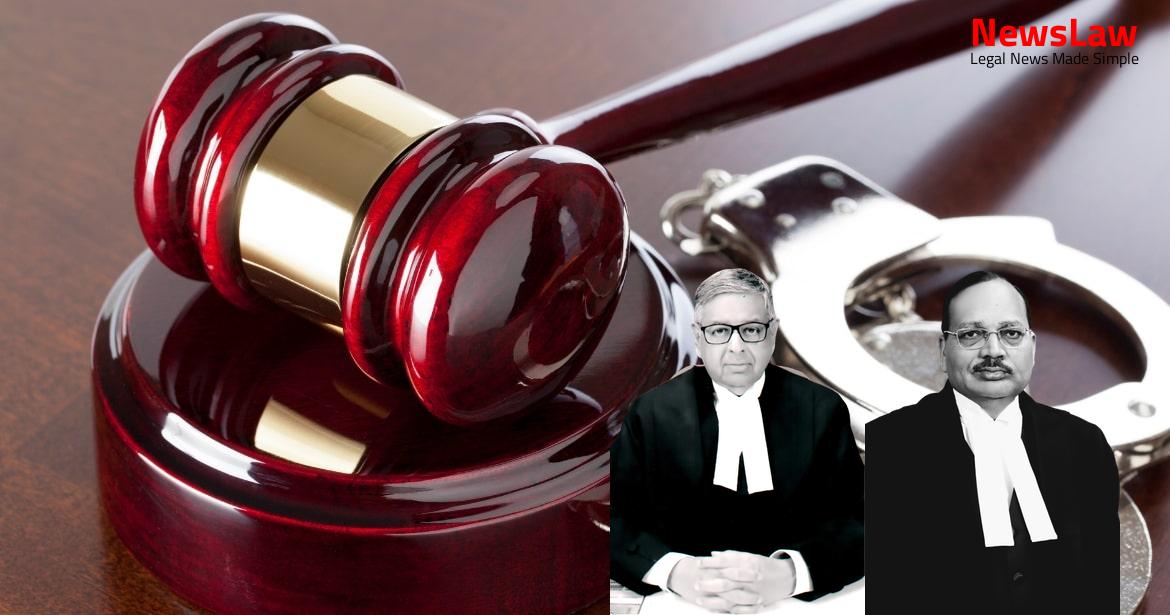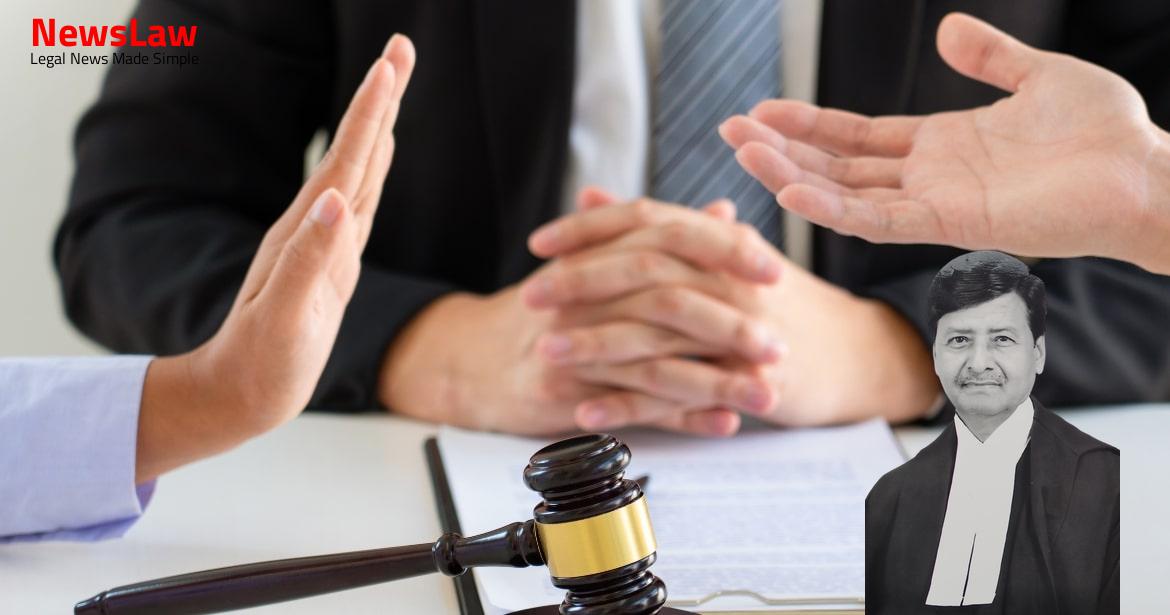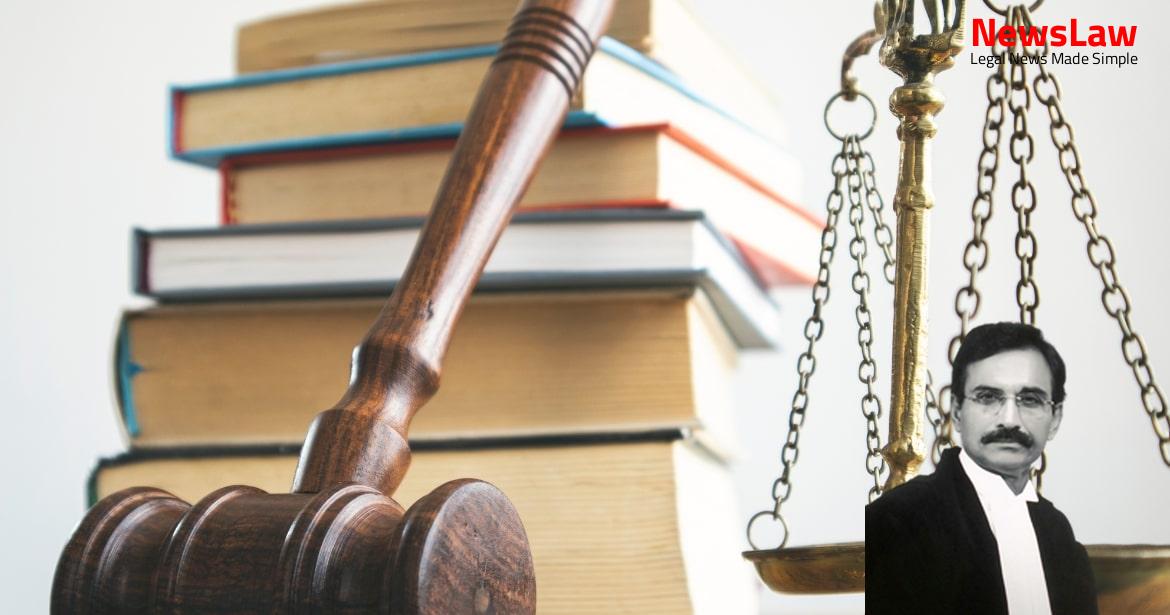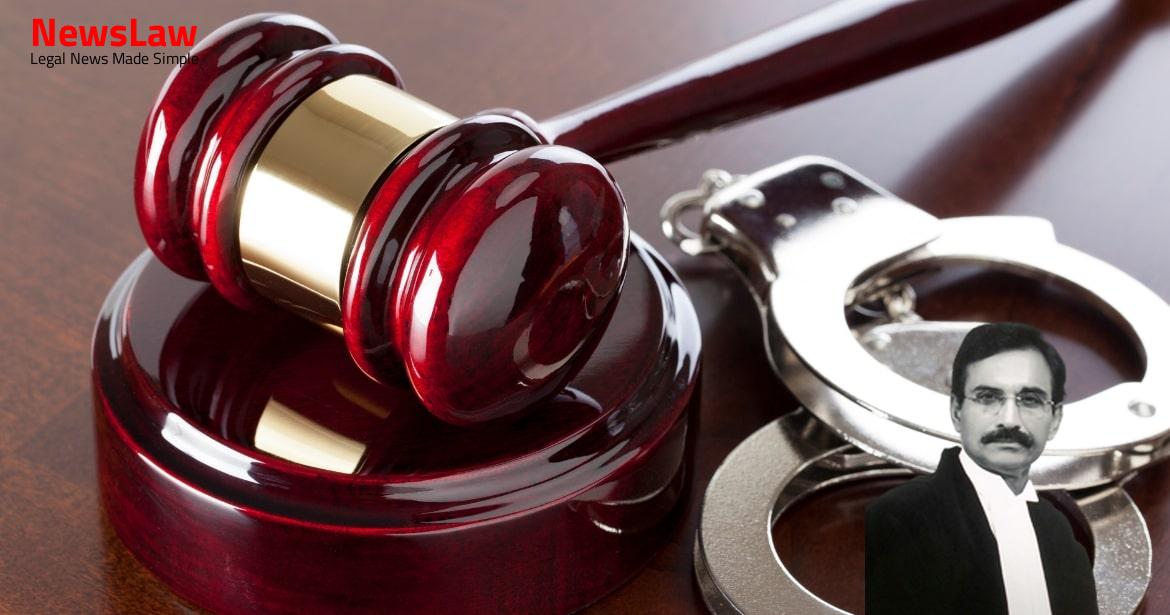In a recent legal case, a court delved into crucial legal analysis to determine preliminary issues at hand. The court’s detailed examination focused on unraveling the intricate layers of law and fact, aiming to reach a fair and just decision. Let’s explore how the court’s thorough legal analysis paved the way for addressing complex issues in the case.
Facts
- The instant appeal is against the order passed by the High Court of Judicature for Rajasthan at Jodhpur in a Civil Writ Petition.
- The High Court allowed the writ petition filed by respondent nos. 1 and 2, directing the Trial Court to decide certain issues as preliminary legal issues.
- The appellant filed a civil suit in 2007 seeking possession of a disputed property and a declaration of ownership against the respondents.
- The Trial Court framed eleven issues, of which relevant ones include entitlement to possession and receipt of rent, civil death of defendants, jurisdiction of the court, and the legal maintainability of the suit.
- The High Court’s order led to the filing of this civil appeal by the appellant.
- The respondents then filed an application before the Trial Court seeking the above issues to be decided as preliminary questions of law.
- The High Court allowed the writ petition and set aside the Trial Court’s order dated 19.05.2009.
- The Trial Court was directed to decide the issues as preliminary questions of law.
- On 19.05.2009, the Trial Court rejected the respondents’ application stating that the issues involved mixed questions of fact and law, requiring evidence to be led before a decision.
Also Read: Electoral Malpractices in Mayor Election
Issue
- The issue of whether the suit is liable to be dismissed as being barred by law and without any cause of action was discussed.
- The court considered the relevant legal provisions and arguments from both parties.
- It was determined that the suit could potentially be dismissed if it is found to be barred by law and lacks a valid cause of action.
- Further examination and analysis will be conducted to reach a final decision on the dismissal of the suit.
Also Read: Balancing Power and Transparency: Electoral Bonds Struck Down, Disclosure Mandated
Arguments
- The appellant’s counsel argues that the impugned order does not prejudice the appellant.
- The counsel for the respondents argues that the High Court’s judgment does not require interference by this Court under Article 136 of the Constitution.
- The original owners took ‘Jain Diksha’ and became ‘Sadhvis’, as per admission by the respondents’ counsel.
- The High Court’s direction to decide the issues as preliminary questions is justified due to the circumstances.
- The appellant’s counsel contends that the High Court’s decision to treat the issues as preliminary issues was wrong as they involve mixed questions of law and fact.
- Certain observations in the impugned order could negatively impact the appellant’s suit, according to the appellant’s counsel.
- The appellant’s counsel asserts that the issues involve mixed questions of fact and law but fails to provide material to support this claim.
- The appellant’s claim is based on documents executed by a power of attorney holder, as per the appellant’s own pleadings.
- The trial has not concluded despite being filed in 2007, and there is no stay of trial according to the counsel.
- Learned counsel for the respondents emphasized that the issues framed relate to the maintainability of the suit
- The learned counsel for the appellant was unable to identify any potential prejudice if the issues are taken up and decided by the Trial Court as preliminary questions of law
Also Read: Recall of Resolution Plan Approval: Legal Analysis
Analysis
- The impugned order dated 15.03.2010 passed by the High Court will not be interfered with, except to direct the Trial Court to decide the issues and the suit without being influenced by the High Court’s observations.
- Some observations made by the High Court in the impugned order could negatively impact the appellant’s case before the Trial Court.
- Certain stray observations in paragraphs 5 and 7 of the High Court’s order may prejudice the issues in the case.
Decision
- The present trial has been pending for a long duration.
- The Trial Court is directed to decide the matter expeditiously on its own merits and in accordance with law.
- The Civil Appeal is disposed of with the given directions.
- The stay on the operation of the impugned order, as directed in the Court’s previous orders, is now vacated.
Case Title: SANTOSH KUMAR Vs. ASHOK CHAND (2021 INSC 52)
Case Number: C.A. No.-005124-005124 / 2013



